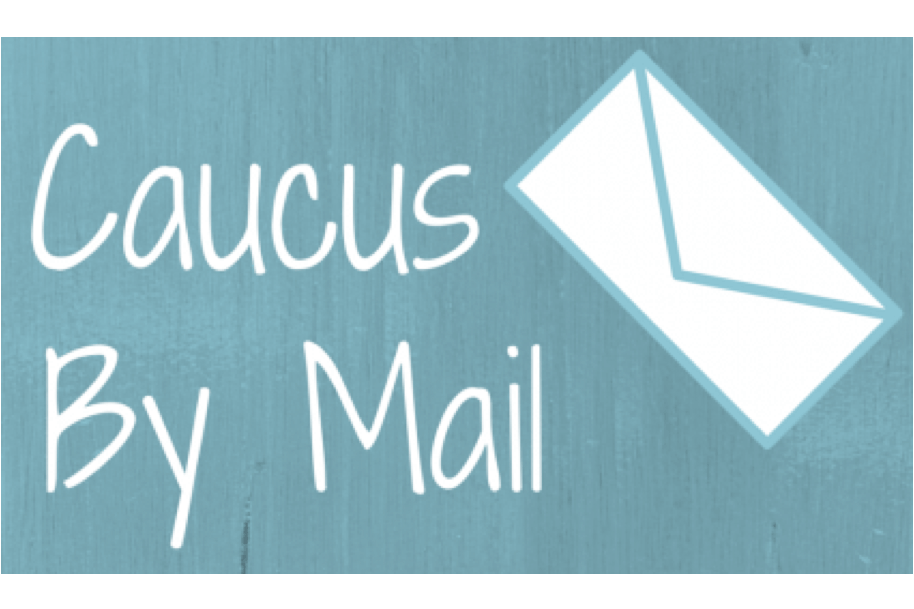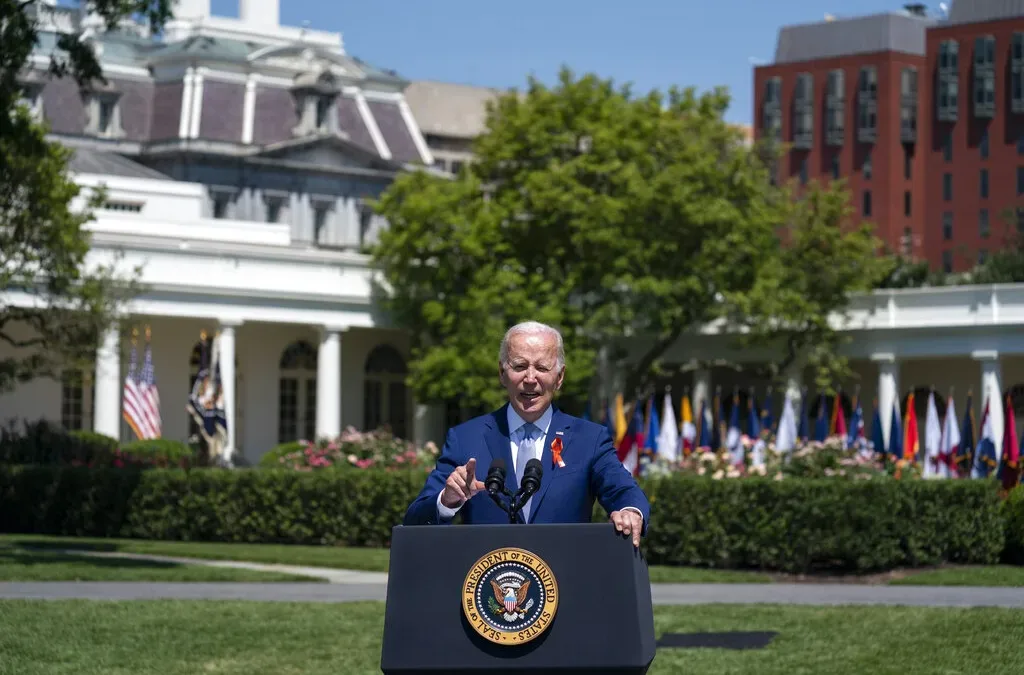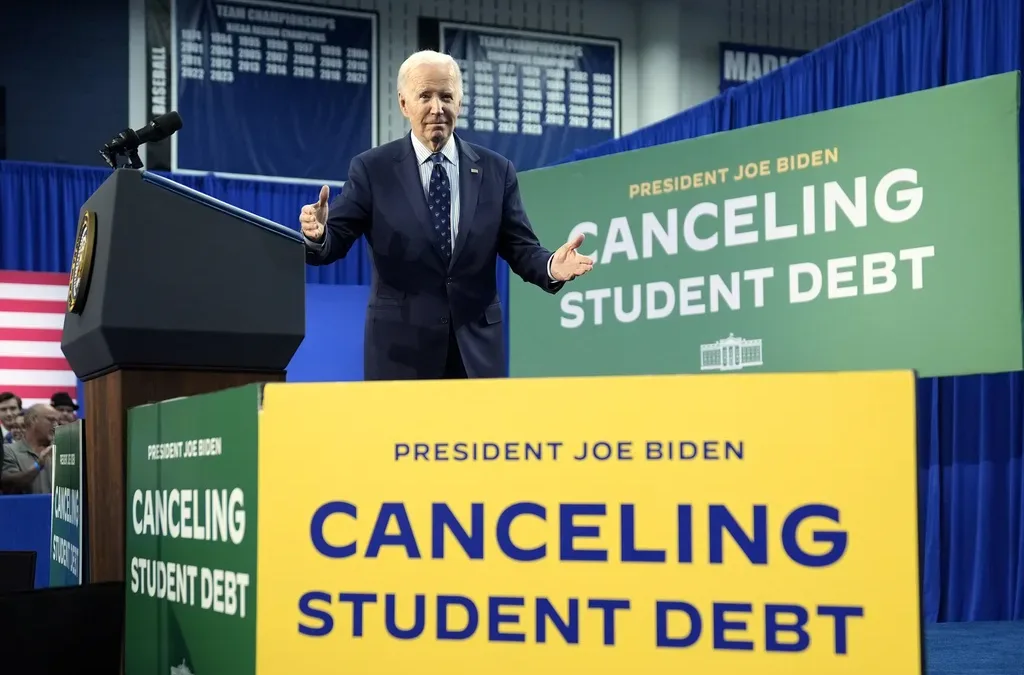
Caucuses are won by those who show up. Or, in the case of the Nebraska Democratic Caucus, it could be determined by some who don’t. That depends on how well the campaigns for Hillary Clinton and Bernie Sanders take advantage of the absentee ballot option the Nebraska Democrats offer for their caucus.
Democrats in Nebraska can caucus by absentee in their March 5th caucus. It’s been an option available for them in the past, but this is the first time the presidential campaigns are really focusing on signing people up for it.
As of Wednesday morning, about 5,300 Nebraska Democrats have requested an absentee presidential preference card, according to public data on the state party’s website. That’s over 13% of the turnout for the 2008 Nebraska Caucus (of course, they still have to send back their votes – not all will).
“Our caucus is unique, as every caucus is,” said Vince Powers, the chair of the Nebraska Democratic Party, of their absentee option, the only caucus state to offer one. “We want as much participation as possible … Unlike any other state, if you’re a Democrat in Nebraska, you can participate.”
Nebraska Democrats made sure to include an absentee option when they first created their caucus in 2008, as a way to move up the nominating calendar from their mid-May primary.
“We don’t want to disenfranchise those people who can’t participate in the caucus,” explained Christa Yoakum, a party activist in Lincoln who pushed heavily for absentees when the party discussed moving to a caucus.
Voters must have a valid excuse as to why they cannot attend their caucus on March 5th. The request form lists several options as legitimate reasons, including being homebound, disabled, on military service, or being away as a student. Volunteers for the campaigns noted they’ve also signed up many who are working jobs that day or are unsure if they can afford or arrange to get transportation to the caucus site (some counties hold their caucus at only one location).
“It’s not, as some people have portrayed it, ‘I don’t want to attend,'” emphasized Powers.

Sanders canvassers return with potential absentee requests
Still, there’s not really a concrete way for the party, which is running the caucus mostly with volunteers, to verify every person’s rationale for caucusing absentee.
“We’re Nebraskans, we’re honest people,” Powers said. “We start with the proposition that Nebraskans are honest, we end with the proposition that Nebraskans are honest.”
But Yoakum pointed out that the party has a strong system of verifying that the actual voter was eligible to vote and that they filled out the absentee presidential preference card, matching signatures from the request forms when they get the card back.
Today is the last day Nebraskans can request an absentee card. There was a one-month time period in which to request an absentee, starting on January 24th. All cards sent out by the party must be returned back to the Nebraska Democratic Party by March 1st; those cards will be sent out to the individual caucus site chairs the following day so they have them to include to the count on caucus night. Obviously, those who caucus absentee can’t realign at any point during the night. Since there’s only two candidates, both of whom seem to have enough support across the state to meet the viability threshold everywhere, problems involving delegate math are unlikely to come up.
Only the voter can return the ballot, either through the mail or in-person. So unlike the absentee pick-up operation that Democratic campaigns in Iowa employ during general elections, staff and volunteers can’t drive around to essentially take and deposit votes at the state party.
Interestingly, Martin O’Malley’s name will remain on the presidential preference card, as his campaign paid for the ballot access several months back.
Few Nebraskans used the absentee option in the past, so getting people to request one this year will all come down to the campaigns.
“The caucus system in Nebraska is still new,” noted State Senator Adam Morfeld, who’s been volunteering for the Clinton campaign in his home district of Lincoln. “A lot of people I was with on the phones were surprised there was an absentee option.”
The presidential campaigns weren’t nearly as active in the 2008 caucus as they are in 2016, so that should drive many more to use the option. The interesting thing to watch is whether one campaign pushes it much more to give themselves a big advantage on caucus night.

Clinton staff prepare canvass packets with absentee request forms
“We’re finding that the campaigns are seeing this as a good strategy to lock in votes,” observed Yoakum, who has seen both Clinton and Sanders campaigns pushing absentee requests.
“We’ve seen the Clinton campaign make a push, we have not seen the Sanders campaign, but they could be doing it,” added Powers.
There was some earlier grumbling from Sanders supporters in the state over how the absentee option could benefit Clinton, whose support skews older and who might have more physical impediments to attending a caucus. But party leaders scoffed at that, pointing out that it’s been part of their caucus process, and not something new implemented behind the scenes to help her.
“[Absentees are] something we mention in every conversation,” said Kane Miller, the Nebraska state director for the Clinton campaign.
Still, Miller noted, while they’re pushing absentees where they can, there’s only so much time even with a full compliment of staff in the state to run a full program focused on absentees. The bigger priority for them is simply to get people out to caucus.
“When you’re talking about running a four-week program, there’s only so much you can do,” Miller explained. “You can’t get too cute with it. For us, we’re trying to every day, above all else, we’re talking to as many Democratic voters as you can.”
A few Clinton volunteers Starting Line spoke with did mention they personally were working some Latino communities with absentee cards. And in theory the absentee option would seem to benefit Clinton supporters’ older demographics a little better than Sanders’, whose more youthful and enthusiastic voters might be easier to turn out for the caucus. Caucuses are often filled with the more excited and more ideological voters, which many have suggested would help Sanders, although he’s come up short in the first two caucus states.
It’s difficult to tell whether the Clinton operation is actually pushing absentees stronger than Sanders. Neither campaign wanted to be too forthcoming with specifics of their absentee plan (although they likely know who’s leading considering they can see the number of requests). But a few subtle things Starting Line noticed while at both sides’ offices and various comments seemed to imply that the Clinton operation was more focused on signing up voters for absentee ballots.
Part of that seems to be due to both a philosophical and strategic difference the Sanders campaign and volunteers have over absentee caucusing.
“We would prefer people actually go the caucus,” Sanders’ Nebraska grassroots volunteer leader Linda Anderson said. “I just posted on the Facebook page [late last week] about absentee ballots … We have been telling people about it if they say they can’t make it to the caucus.”
Many Sanders backers believe the better strategy is to pack the caucus sites, hoping that brings even more people to their side on caucus night.
“I enjoy the caucus system, but it’s better when you can get as many people there as possible,” Anderson added. “It’s sort of a head game too. If you’ve got a room full of people and a larger majority are for Bernie, the lesser minority is for someone else, it’s a lot harder for those people to justify being for that person. I always tell people if you can make it, please come, because it’s fun anyway.”
Sanders’ state director, Bill Romjue, agreed that while they’d rather see people show up in person, absentee caucusers could have a big impact.
“It’s kind of a wild card,” Romjue said. “I’d just as soon have a straight caucus … It’s difficult to understand what excuse you need to vote absentee. I think it’s going to be cumbersome for the party to process if there’s a lot of them.”
“I wouldn’t advise any other caucus state to get into this sort of thing,” he added with a laugh.
How well the absentee method is implemented could be of considerable interest to other caucus states struggling with ways to combat criticisms of the caucus process. The Super Tuesday states next week will garner much of the attention, but many around the country will want to keep a close eye on Nebraska, if for nothing else to see how an absentee caucus option could impact the close race here between Clinton and Sanders.
By Pat Rynard
Posted 2/24/16
Politics

Biden announces new action to address gun sale loopholes
The Biden administration on Thursday announced new action to crack down on the sale of firearms without background checks and prevent the illegal...

Biden cancels student loan debt for 2,690 more Iowans
The Biden administration on Friday announced its cancellation of an additional $7.4 billion in student debt for 277,000 borrowers, including 2,690...
Local News

No more Kum & Go? New owner Maverik of Utah retiring famous brand
Will Kum & Go have come and gone by next year? One new report claims that's the plan by the store's new owners. The Iowa-based convenience store...

Here’s a recap of the biggest headlines Iowa celebs made In 2023
For these famous Iowans, 2023 was a year of controversy, career highlights, and full-circle moments. Here’s how 2023 went for the following Iowans:...





